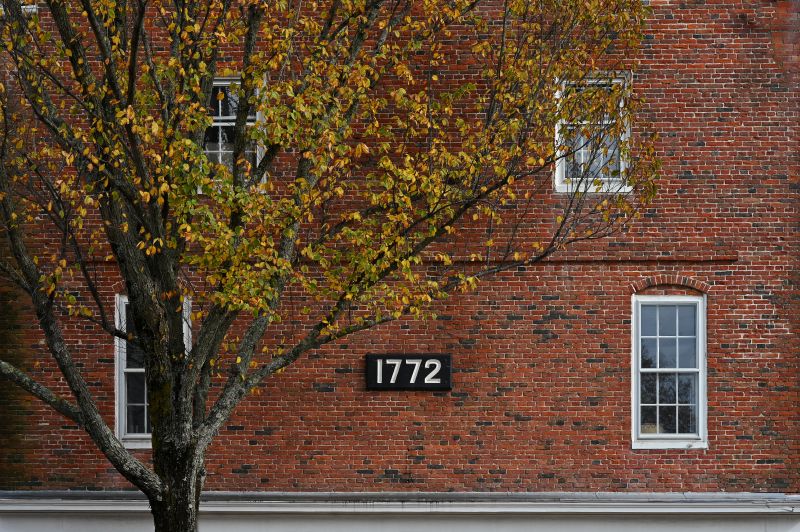
Boston’s overall apartment rental market looks to be strong and mostly steady as we approach the half way point of 2025. The majority of Greater Boston has apartment availability and vacancies that are very close to their levels from last June. There are pockets of Boston that are experiencing much higher vacancy and availability rates which have been attributed to a few key factors that we will deep dive into later in this report. The rental market also loosened up slightly from last year, providing renters with more options in 2025 than they saw in 2024. As a result, rent price growth has decelerated in Boston after following a rapid growth phase from late 2021 to early 2024. We may also see a significant amount of price reductions in several neighborhoods. Here are the trends driving Boston’s rental market half way through 2025.
Boston Apartment Supply Metrics
The current real-time availability rate (RTAR) for Boston apartments is 4.31%. That figure is up +3.36% year-over-year and up +38.59% compared to two years ago. The market peaked later and slightly higher this year than it did in 2024. Boston apartment availability hit its 2025 apex of 5.61% in early May, compared to its peak of 5.47% in late March of 2024. Still, availability has been trending downwards rapidly over the last 6 weeks indicating that demand for rental units is still solid, and we’ll likely see RTAR bottom out somewhere in the 1.25%-1.85% level later this Fall.
There is a lot more noise or hair in our data forecasting equation this year considering that several universities that have overweighted their aggressive recruitment of international students. The recent international student restrictions and controversies have caused a plethora of delays in the apartment leasing process with a few neighborhoods showing some significant stagnation in rental inventory.
Landlords and property managers have also been adjusting rental prices more frequently than the last two years as there has been more range finding going on. It certainly is a tale of two rental leasing cities going on lately. Talk with some landlords that are heavily weighted with properties around universities and they have been cutting prices multiple times– but talk with a landlord in core Boston and they are gloating at how quickly their properties are renting and how they have had a ton of renewals. We haven’t seen a market like this before– it is almost two leasing markets within Boston. Knowledgeable apartment leasing experts are able to thread the needle and explain the differences in rent sometimes even just a few streets over from different universities.
The real-time vacancy rate (RTVR) in Boston is currently 0.61%. That figure is down -20.78% compared to last year and up +19.61% compared to late June 2023. Vacancies overall have remained incredibly low since the pandemic, which is a symptom of the housing supply shortage the metro area has endured since 2021. Interestingly, we did not see as big of a vacancy spike in June as we’ve seen in the last few years. In June of 2023 and 2024, Boston’s RTVR spiked by +41.54% and +50.82% respectively. This year, vacancies jumped by a smaller margin at the beginning of June (+31.43%). Combine that with the fact that vacancies surged to 1.61% last September, the highest level since 2021, it would appear that Boston’s rental market is trending back towards its September leasing cycle.
Much of this incredibly low vacancy rate can be attributed to the lack of building new product. High energy, material, labor and borrowing costs have caused developers to take a knee waiting for better economic conditions. There is also the problematic virtue signaling of forcing developers to accept ridiculously high affordability requirements in their deals that ends up putting developers on hold because deals are not penciling. We are reaching the point of the exact definition of insanity which is doing the same thing over and over and hoping to get a different result. Based on speaking with the largest developers in the state it has become clear that until: energy, material, labor and borrowing costs come down there will be a lot of stalled projects.
Let’s hope our politicians call a two year moratorium on affordability requirements until economic conditions get better so our builders can get going and we get more supply out there to drive down rental prices. Look to Austin, Texas as the example of how to bring down rent prices for their entire metropolitan area. Nothing drives down rental prices faster than massive amounts of supply.
According to our real-time Boston apartment data, the median days on market for an apartment in Boston is 31 days. That is up slightly (+3 days) compared to the median days on market from our mid-year Boston apartment rental market report in 2024. Despite the longer leasing cycles, Boston’s absorption rate over the last few weeks indicates that demand is almost as strong as ever for most apartments across a wide swath of neighborhoods. Again there are certain neighborhoods such as: Mission Hill, Fort Hill, Allston, Fenway and others that are experiencing an acute shortage of international students so the RTAR and RTVR are much higher than ever expected. The data is reflecting a significant change in these areas. It will be interesting to see how quickly they can close the gap in the next 8 weeks. It’s going to be a wild rental ride for sure.
Average Rent Prices in Boston
The average rent price for apartments in Boston, MA is $3,311. That figure is up +1.44% year-over-year and up +7.33% compared to 2 years ago. Interestingly, rent prices have been trending downwards over the past 90 days in Boston after rising through Q4 2024 and Q1 2025. Landlords may be unsure about demand for September rentals with the current administration’s plans to beef up vetting of international students receiving visas to study. Expect to see more price reductions in close proximity to many universities as September approaches as a result.
Rent price growth has been highest for larger unit sizes in Boston over the last year. Year-over-year price growth for Boston 3 bedroom, 4 bedroom, and 5 bedroom apartments are up +5.75%, +6.97%, and +8.93% respectively. Prices for studios and 2 bedrooms rose by +4.99% and +2.03% respectively, while 1 bedroom apartments in Boston actually fell by -1.01% year-over-year. This trend of bigger bedrooms getting larger price increases did not surprise us one bit as our state energy prices are ridiculously high compared to all other states- so people are seeking ways to save money through more roommates. In numerous discussions with renters they have serious concerns with how our state improperly handles our utility prices. Tenants are now seeking more ways than ever to save money by living together. We expect this trend to continue until energy and utility prices come down.
Boston Apartment Rental Market Trends of 2025
There are several interesting trends that we are following that could have meaningful implications on Boston’s apartment rental market. Boston’s rental market is highly dependent on off-campus housing demand and rental supply, both of which could be affected by policy decisions in the upcoming months. Here are the trends to look out for.
Off-Campus Housing Demand and Student Visas
Harvard University made national headlines a few weeks ago when the Trump administration suspended their foreign exchange student program. The decision is still tied up in courts, but if approved it could have an effect on rental demand in the Boston metro. Regardless of Harvard’s outcome, the State Department did announce its plan to expand its vetting of foreign nationals seeking to study at US Universities.
It’s estimated that some local Boston universities have as many as 38% foreign students. If those numbers drop by any significant margin, it will undoubtedly affect the local rental market. In fact, we have already been seeing the effects of this manifest in many nervous landlords wondering when their properties will rent. What seems to have taken everyone by surprise was how high several universities kept increasing their percentage of international students. Many colleges have shown a massive increase in foreign students over the last decade. It appears that this heavy foreign enrollment of local universities works well until it does not.
We have several of Boston’s neighborhoods which traditionally have strong demand from international students showing signs of diminishing demand. The table below shows the 4 neighborhoods where RTAR has risen the most compared to last June. All 4 are very popular off campus housing neighborhoods due to the fact that multiple colleges are within close proximity. What is interesting is that last week real estate agents have been reporting that their phones are now ringing steadily with lots of international students. Perhaps the rental dam is breaking and the leasing cycle is simply much later this year. It will be very fascinating to monitor this tread and we will most likely provide a follow up article in September to see how the dust settles in these areas.
| Neighborhood | June 2025 RTAR | June 2024 RTAR | 1-Year Change % |
| Northeastern/Symphony | 4.25% | 2.32% | +83.19% |
| Roxbury | 8.78% | 5.24% | +67.56% |
| Mission Hill | 7.21% | 4.54% | +58.81% |
| Fort Hill | 10.48% | 6.69% | +56.65% |
Boston’s Changing Demographics
In our past market reports, we’ve covered Boston’s changing demographics in much detail. Boston has become a mecca for venture capital in biotech over the last decade. According to Pitchbook’s Q1 Venture Monitor, the city still ranks #3 out of all US metros in terms of attracting VC funding. As the city continues to add high paying jobs, Boston’s median household income has exploded since 2010 compared to the national average according to US Census data.
| Median Household Income | 2010 | 2023 | Change % |
| Boston | $49,893 | $93,931 | +88.26% |
| United States | $50,046 | $77,719 | +55.30% |
With these changing demographics comes a shift in housing demand. More and more renters are entering the market with higher incomes seeking high end apartments in premium neighborhoods. Our neighborhood data echoes this trend. According to our data, the only 5 neighborhoods where apartment availability has dropped by 20% or more since last June are all considered premium rental markets with average rent prices higher than that of Boston as a whole:
| Neighborhood | June 2025 RTAR | June 2024 RTAR | 1-Year Change % |
| Charlestown Apartments | 0.71% | 1.67% | -57.49% |
| Downtown Apartments | 5.62% | 8.44% | -33.41% |
| South Boston Apartments | 1.64% | 2.28% | -28.07% |
| North End Apartments | 2.82% | 3.86% | -26.94% |
| Back Bay Apartments | 2.39% | 3.10% | -22.90% |
This is a trend that won’t let up anytime soon, and should be a clear call to City Hall to put less emphasis on adding high affordability requirements to new deals and just focus on supply and construction developments in Boston. By adding a ton of supply we can quickly bring down prices like several other cities across the country. Supply is the key to getting rental prices down– not adding affordable units that developers lose money on. Adding high affordability requirements to development deals causes the market to not build which drives up the price of rentals – not down. Unfortunately, the data indicates that the opposite is happening in Boston. Perhaps we should chart a new path of serious supply based on letting development deals stand on their own merit without forcing affordability requirements into rental deals.
New Housing Permits Lagging in Boston
According to data from FRED, the number of new housing structures approved and permitted is on pace to be the lowest number of the last 5 years and has been trending downwards steadily since 2020. Without a doubt, interest rates and the Fed’s recent unwillingness to lower them has had a negative impact on new housing starts, but that is all-the-more reason for City Hall to find unique ways of spurring new construction in Boston. If no action is taken, we will continue to experience supply shortages in our rental market, which will continue to push prices higher. The time to change course to match current development market conditions is now.
Boston Area Unemployment Uptick
Another trend we’re keeping an eye on is a recent uptick in Boston’s unemployment rate. Last June, the metro’s unemployment rate surpassed the 4% level for the first time since the pandemic and has hovered between 4.2% and 4.5% through the first 4 months of 2025. We don’t see any evidence of an emerging trend of widespread corporate layoffs occurring in Boston. With the economy strong both locally and nationally, we don’t expect this trend to worsen. It goes without saying, though, that we can’t predict any future political or international uncertainty or events that could alter these forecasts.
Massachusetts Broker Fee Battle
In our 2025 Boston Apartment Rental Market Report, we discussed the possibility of new legislation at the state level that could shift the burden of broker’s fees from tenants onto landlords. Governor Healy threw her support behind the proposal, and since then both the State Senate and the House have included provisions in their budget proposals outlining how broker’s fees should be paid.
The State House budget plan passed last month included language that would require the renter to pay the broker fee if they ‘initiated contact’ with the broker. That would include responding to an online listing for an apartment. The Senate proposal took it a step further and stated the fee would be paid only by the “party who originally engaged and entered into a contract.” That would mean the tenant would only have to pay the broker fee if they hired a broker to help with their housing search. It would effectively pass the broker fee onto the landlord if they hired a broker to market and show a property, which is what happens in most cases. It would also prohibit both parties from any arrangements where they could split the fee.
Now it’s up to the conference committee to reconcile the two budget plans and send the final proposal to Governor Healy’s desk for approval. We stated our position on the matter earlier this year, but it’s worth restating. Real estate agents provide an invaluable service to both landlords and tenants. They are the boots on the ground that provide valuable insight and support that help guide tenants in making housing decisions. Passing the fees onto landlords will essentially cut agents out of the rental process and put renters at a disadvantage. It will also increase average rent prices as landlords will look to recoup the broker fee in the form of higher rents. Look no further than New York City as proof, where rents jumped 15% in just one week after the city banned tenant-paid broker fees. The underlying issue is affordability, which is unequivocally tied to housing supply. If we want to get serious about tackling the issue of affordability, we must address the housing supply shortage in metro Boston.

Boston Apartment Rental Market Forecast 2025
Based on current trends and apartment data in Boston, it would appear that we’re headed towards a small transition in some of our local apartment rental neighborhoods. Boston’s premium rental markets are showing very strong demand signals while Boston’s student enclaves have been slow to absorb available rental inventory. For that reason, we expect to see a larger spike in vacancies at the beginning of September than we’ve seen over the past few years. Look for Boston’s RTVR to jump above 2% in September for the first time since the pandemic recovery. The RTVR over 2% is still not significant enough to cause widespread price reductions and it will most likely only be confined to several areas near universities. Overall it will probably be a healthy change and it will give many landlords a pause to clean up and renovate some of the unrented inventory.
Forecasting average rent prices may prove difficult during the second half of 2024. On one hand, apartment supply increases in Boston’s student markets should put slight downward pressure on rental prices as we approach the pivotal 9/1 leasing date. We’re already seeing price drops in some of those neighborhoods. If a large number of units remain unrented by 9/1, we will see further price erosion throughout the fall months. On the other hand, with premium markets in high demand it will probably negate any meaningful overall price drops across the Greater Boston Area. With supply figures closely tied to last year’s figures, we predict that rent prices will finish the year up somewhere in the +0.5--2.5% range. We will continue to monitor these trends as they develop right here on bostonpads.com.

Demetrios Salpoglou
Published June 30, 2025
Demetrios has pulled together the largest apartment leasing team in the Greater Boston Area and is responsible for procuring more apartment rentals than anyone in New England – with over 130k people finding their housing through his services. Demetrios is an avid real estate developer, peak performance trainer, educator, guest lecturer and motivational speaker.










